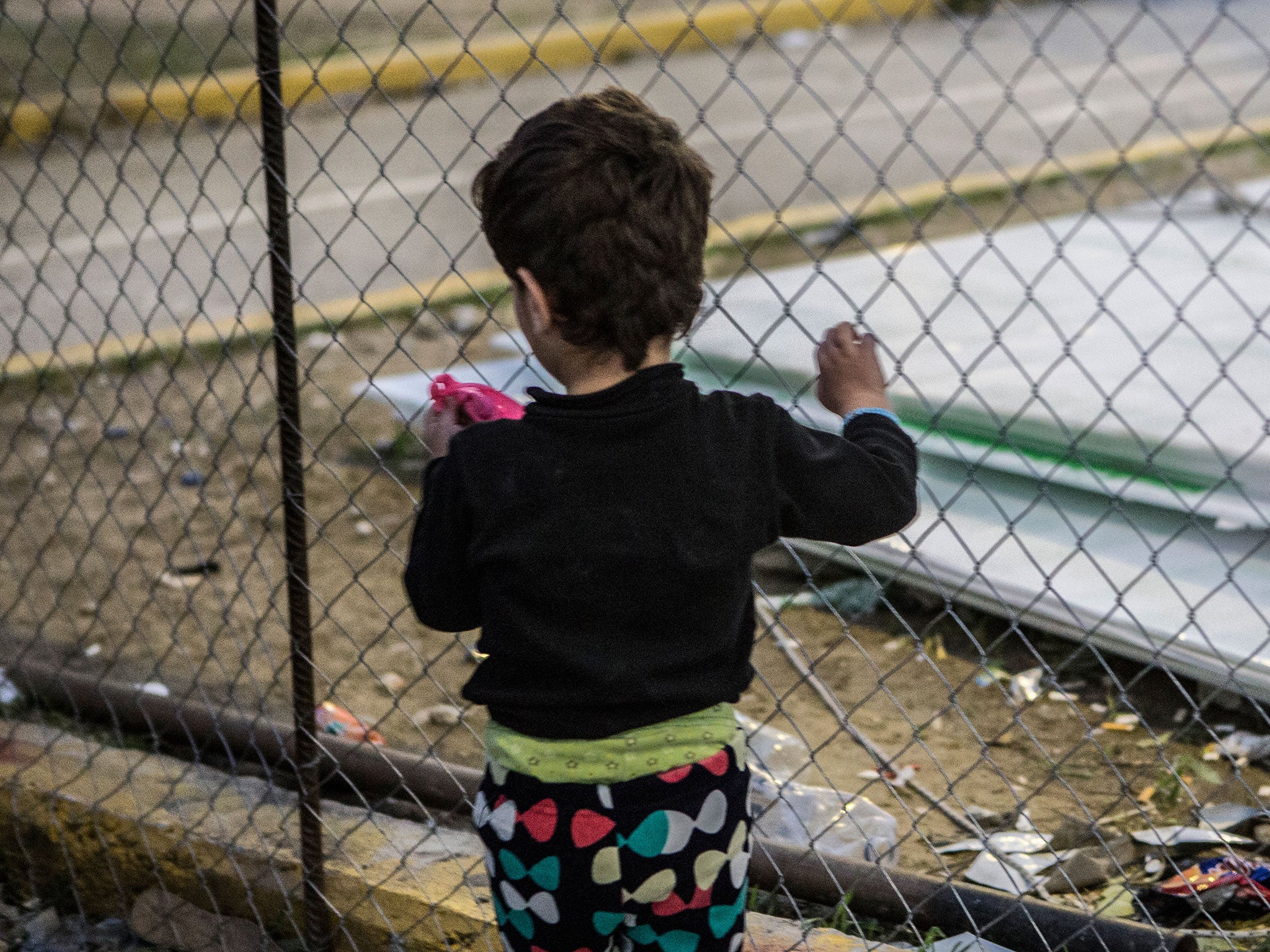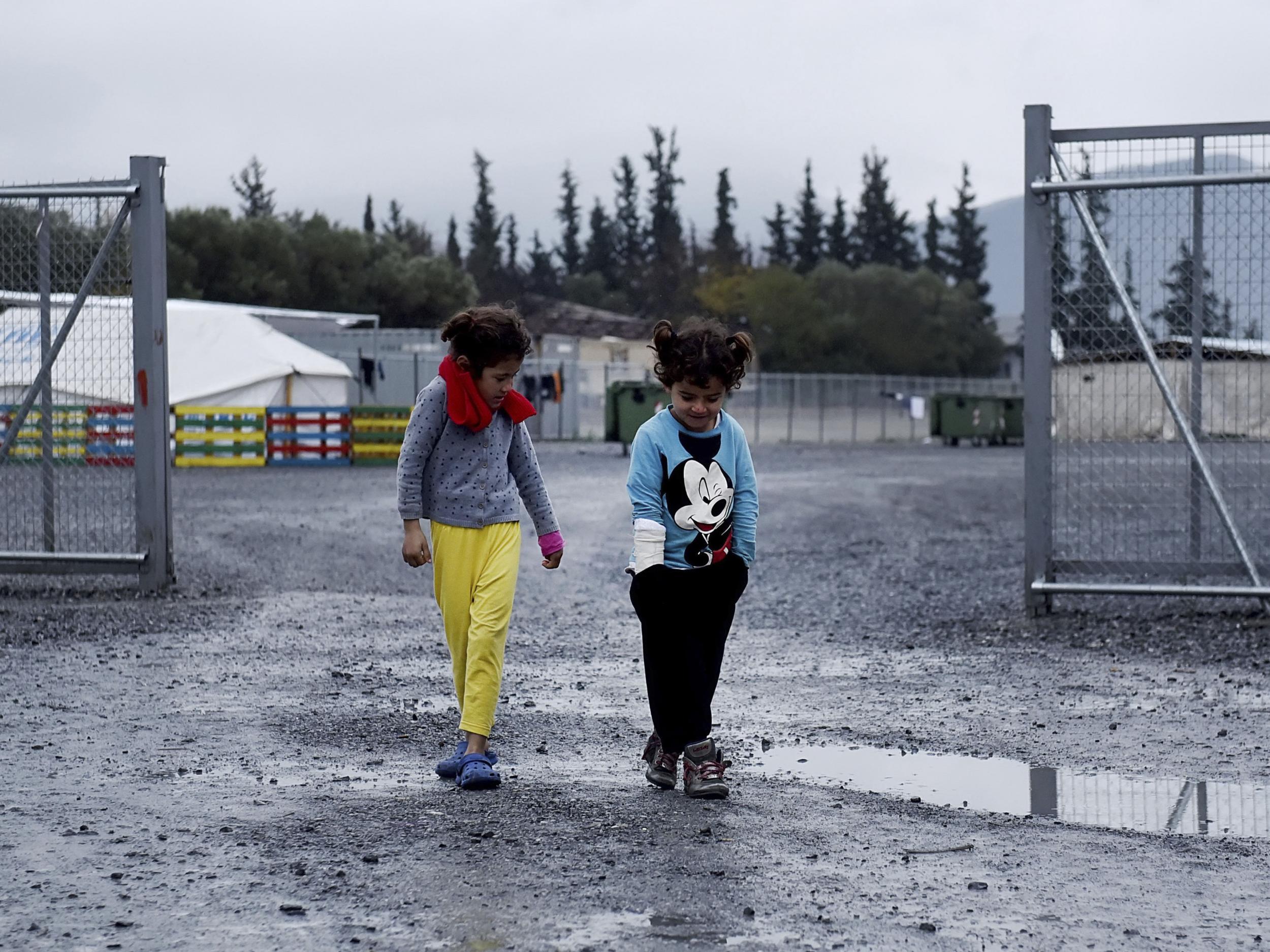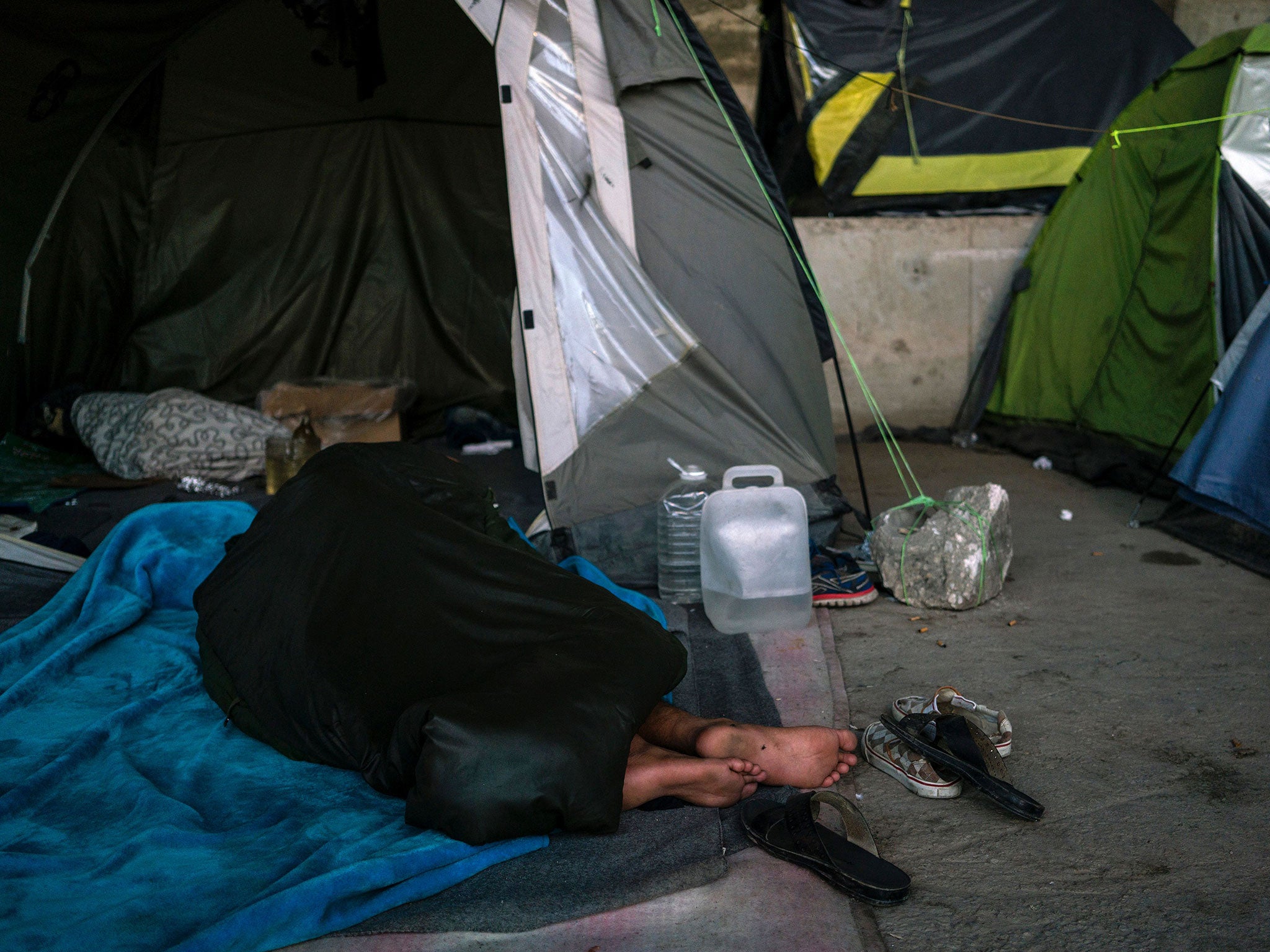Four-year-old girl among refugees raped in Greece as thousands of asylum seekers trapped in camps
Children resorting to selling 'survival sex' in desperation for shelter and money to escape

Your support helps us to tell the story
From reproductive rights to climate change to Big Tech, The Independent is on the ground when the story is developing. Whether it's investigating the financials of Elon Musk's pro-Trump PAC or producing our latest documentary, 'The A Word', which shines a light on the American women fighting for reproductive rights, we know how important it is to parse out the facts from the messaging.
At such a critical moment in US history, we need reporters on the ground. Your donation allows us to keep sending journalists to speak to both sides of the story.
The Independent is trusted by Americans across the entire political spectrum. And unlike many other quality news outlets, we choose not to lock Americans out of our reporting and analysis with paywalls. We believe quality journalism should be available to everyone, paid for by those who can afford it.
Your support makes all the difference.“I told myself, ‘Look at yourself – you came to Europe, what was your aim?’ I am not doing this because I like it but I don’t have the money, I don’t have a choice.”
Those are the words of one of many refugee children forced into selling sex to survive in Greece, where a four-year-old girl is among those raped in camps that were supposed to afford them protection.
A study by Harvard University is warning of a “growing epidemic” of sexual exploitation and abuse in the country, which houses 62,000 asylum seekers stranded by the EU-Turkey deal and border closures through Europe.
“We had a case of a four-year-old girl who was raped,” a psychologist at a camp in Athens told researchers. “The mother did whatever was possible to report it.”
But aid workers and officials say there is often nowhere to turn, with victims trapped in camps with their abusers too frightened to go to police or authorities, who frequently lack interpreters and specialists.
The absence of arrests can lead asylum seekers to take violent retribution. In one Greek camp, a man who had already married one child raped another underage girl, and was badly beaten by other migrants.
Aid workers told the FXB Center for Health and Human Rights of criminal gangs “thriving” in squalid camps, where many refugees have been living for more than a year, and terrorising victims into silence.
“Having endured the risks of sexual violence or having experienced sexual violence during their journey, migrant children suffer from the fear of sexual abuse in a place that should have guaranteed them safety and protection,” the report said.
It found that “weak or non-existent” structures leave children at heightened danger, with reports of sexual assault rising while gangs blackmail minors and threaten to send humiliating photos to their families.
“A man from one of the ‘mafia’ groups asked a couple’s seven-year-old daughter into their tent to play games on his phone and then zipped up the tent,” a doctor told researchers.
“She came back with marks on her arms and neck. Later, the girl described how she was sexually abused.”
Rape and sexual assault is feared to be significantly underreported because of the fear of retribution and stigma, while administrative backlogs can cause long delays before victims can be moved away from their abusers.
The EU-Turkey deal has left thousands of children detained among 13,000 migrants in overcrowded island camps, despite concerns from the UN over unsafe conditions seeing several refugees die of hypothermia and killed in fires over the winter.
Charities previously warned of rising self-harm and attempted suicide in detention centres and elsewhere in Greece, where at least one asylum seeker has killed himself this year amid rising desperation to escape.
Smugglers in Greece, Italy and elsewhere in Europe are known to force refugees including children into prostitution to pay “debts”, while migrants are also resorting to “survival sex” for food and shelter, or to raise money to leave Greece.
Eleni Kotsoni, a psychologist at a Médecins Sans Frontières (MSF) clinic in Athens, told The Independent that an increasing number of asylum seekers were coming forward about the phenomenon.
“It’s not something they talk about easily,” she said. “They are basically doing it to be safe, to be sheltered, to have a roof over their head, to have food in the winter.
“This can be children who are unaccompanied, or it can be women who come here without a husband or person to protect them.”
Refugee women can make “deals” with men from their home countries in exchange for safety inside detention camps, where overcrowding, outbreaks of violence and a lack of security and facilities leave them vulnerable.
In Athens, Thessaloniki and other cities, refugees tend to live in open camps or informal settlements, where adolescents may be preyed on by older men.
Children desperate to raise money or find shelter also seek to sell sex themselves, particularly in notorious parks in Athens where they wait to be approached by paedophiles.
The Harvard study found that the purchasers of migrant child sex were mainly men over 35, while children engaging in “survival sex” are mainly teenage boys, particularly from Afghanistan.

“Elderly men offer food and shelter to children,” an informant told researchers.
“They are willing to satisfy the children’s basic needs in exchange for sexual services, but the children want money.”
Some purchasers demand children to accompany them to their homes or meet at a hotel, the report said, while others insist on having sex in a park such as the notorious Pedion tou Areos (Field of Ares) in Athens.
The report found prices “rarely exceed €15 (£13) per exchange”. With smugglers hiking fees as borders and fences have gone up across Europe, prospects of escaping Greece are fading.
One child said he had “given up the hope of finding a way out of Greece, but other boys are still trying to collect the money to leave”, while another told journalists: “I never thought I’d have to do something like this.
“When the money ran out, I had to learn to do this…it was the first time I did this, I had no experience.”
Aid workers expect the situation to worsen as refugees remain trapped in Greece for ever-lengthening periods and relocation programmes including a British scheme are scrapped.
Within the first 10 months of 2016, more than 10,400 children applied for asylum in Greece, mostly from Syria, Afghanistan, Pakistan, Iran and other Middle Eastern and north African nations, creating huge backlogs in an unprepared system.

But by the end of the year only 2,413 migrant children – 11 per cent of those stranded in the country – had been successfully relocated to other European countries despite 160,000 slots being promised.
Marleen Korthals Altes, a senior child protection adviser at Save the Children, said the closure of borders through the Balkans route had increased the risk of sexual violence and exploitation.
“People are remaining either in camps that are generally lacking security and law enforcement on the mainland…accommodation is poor and people are living in limbo,” she told The Independent.
“They came with a certain amount of money to survive but they got stuck and it has run out, and now they are desperate.”
Ms Korthals Altes said that although child protection is heavily legislated in Greece, laws are “inconsistently applied” by overwhelmed authorities, adding: “The policies and the practices are different.”
The Harvard report identified six major risk factors needing to be urgently addressed – the lack of children’s facilities, risky living conditions inside camps, unsupervised mixing of migrant adults and children, under-resourced child protection systems, a lack of coordination among authorities and a “radically inadequate” relocation scheme.
Its authors, Vasileia Digidiki and Jacqueline Bhabha, concluded that EU policies were exacerbating risks by forcing the youngest and most vulnerable refugees to turn to smugglers and take desperate measure to meet their extortionate fees.
While more migrants are dying in treacherous attempts to reach Europe than ever before, political will to help survivors is waning, they noted, adding: “National and international stakeholders should come together to ensure adequate prevention measures, as well as to create safe and legal paths to migration for migrant children in acute need of protection.”